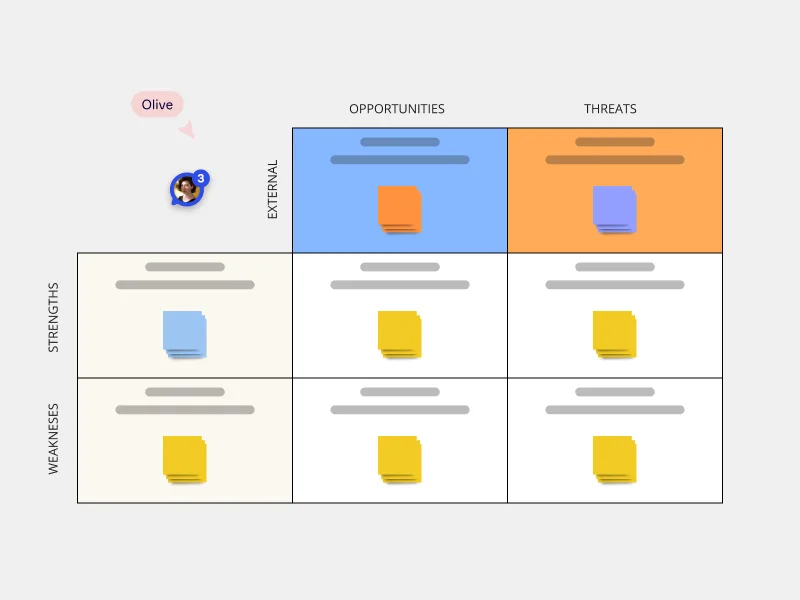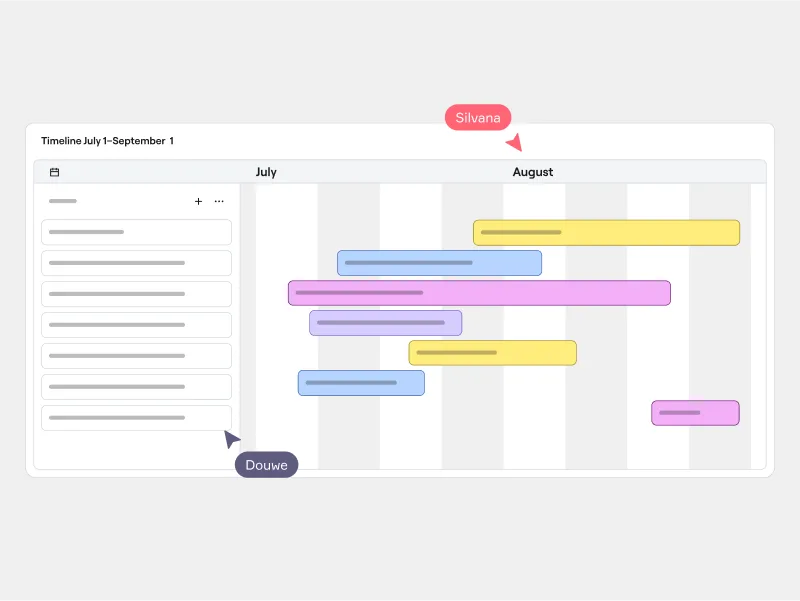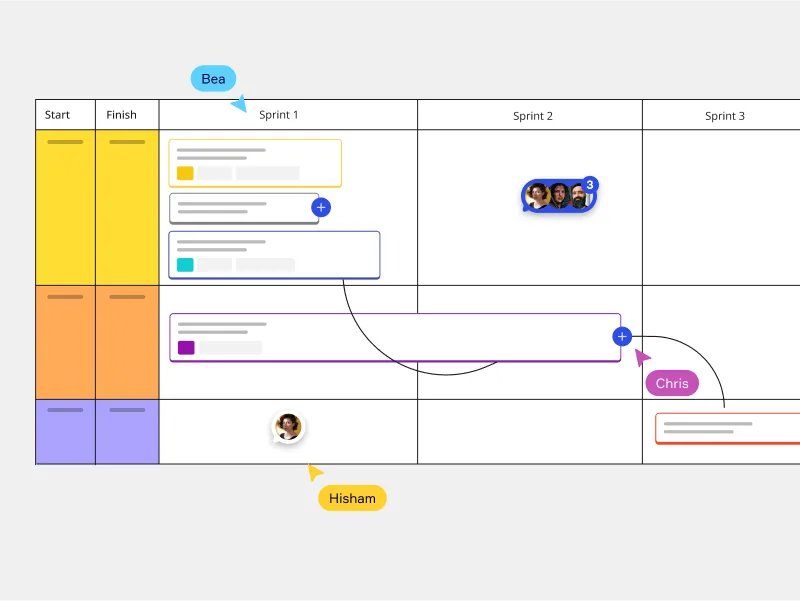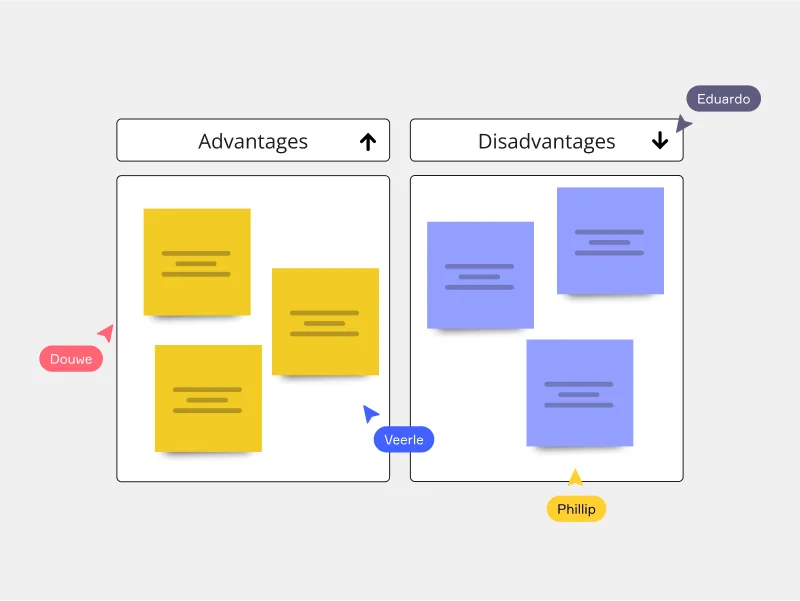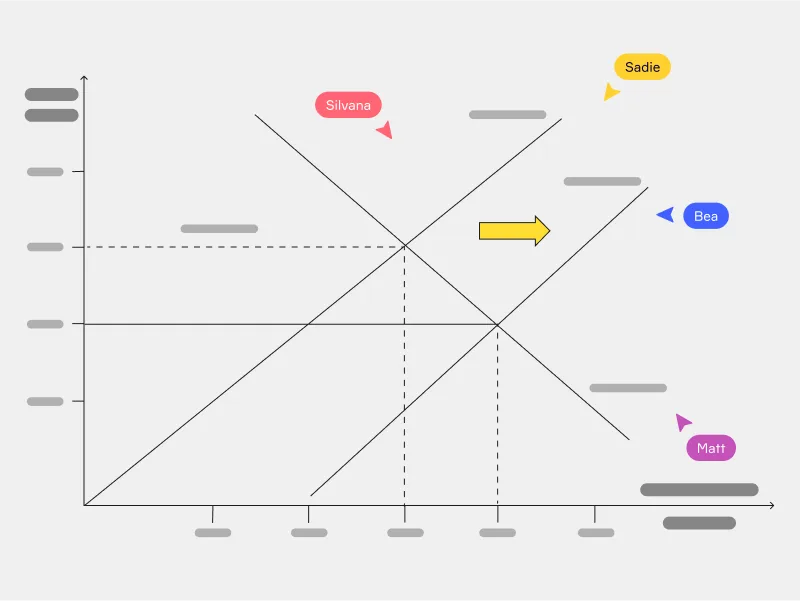Strategic planning with everyone's input and one clear vision
Build strategy, manage execution
Collaboratively build strategy and manage projects by combining your thought process and data in one workspace. Use Miro’s planning tools to develop strategy, align teams, and communicate plans across the whole organization.
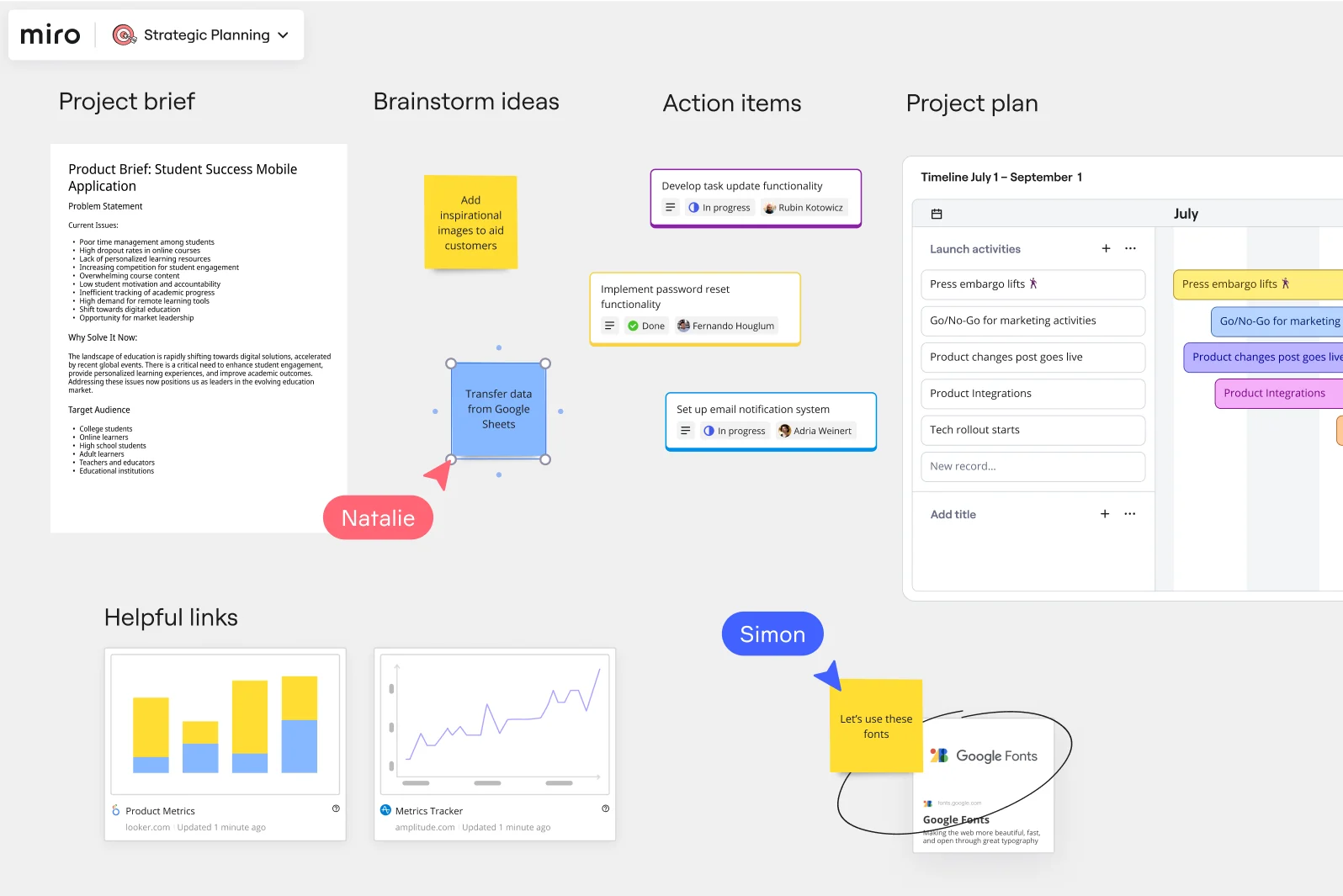
Visualize projects and dependencies
Organize all your project tasks and resources in one place. Draw dependency lines, manage workloads, and make adjustments on the fly to stay aligned and on track. Easily visualize timelines and the strategic planning process from start to finish.
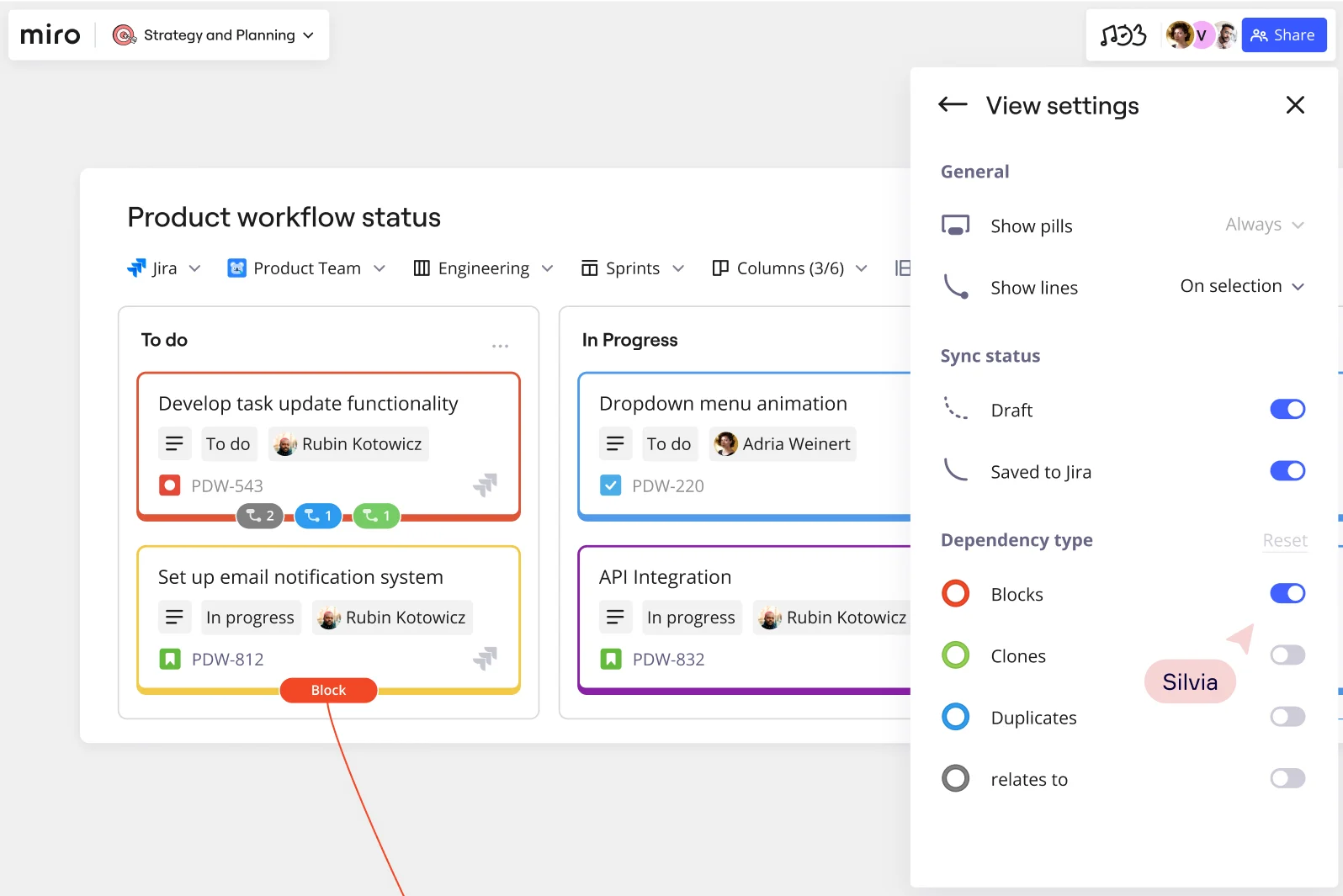
Present strategy and execute with the latest info
Turn strategic plans into engaging presentations with live dashboards, wireframes, and diagrams on beautiful frames. Give more context in real time, or make a board recording async and ensure everyone is in the loop.
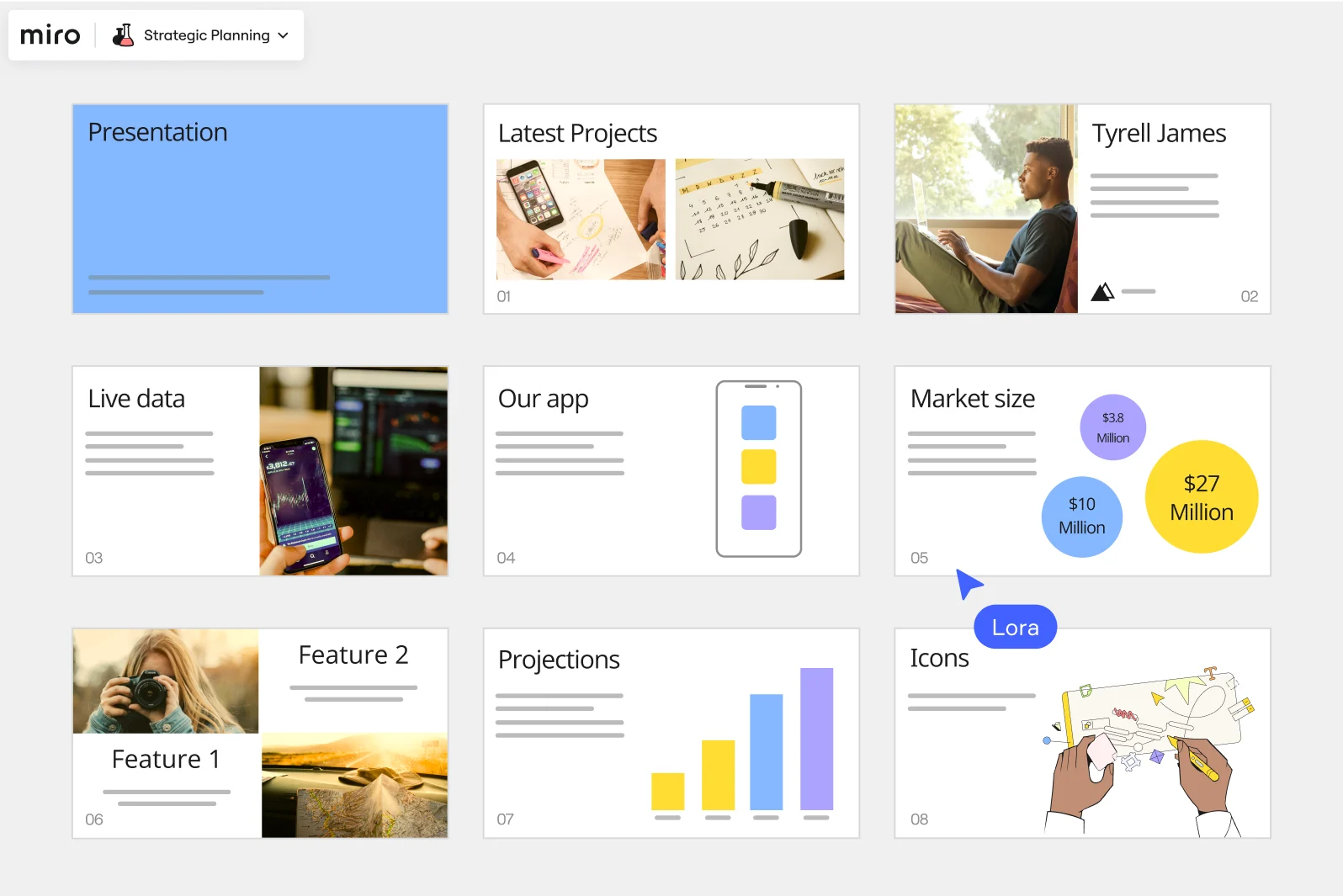
Why Miro is the best tool for strategy planning

Build out plans together
Facilitate strategic planning sessions where everyone can participate regardless of location. Generate ideas, discuss, and build plans in real time or continue work async. You'll never run out of space or get erased.

Present your vision
Develop, implement, and evaluate strategic plans and turn them into beautiful presentations with just a few clicks. Present live, or export as an image or PDF. Embed boards as visual documentation in Confluence, Jira, and more.

Bring agility to teams
Establish a culture of trust and transparency through visibility & inclusion. Structure your strategy in a way everyone understands, streamlining communication and workflows.

Save time
Maximize resource and time efficiency with cross-functional alignment, no duplicated work. Use Miro’s planning tools to automate processes and jump to execution faster.
Create plans that are dynamic and engaging
Related templates
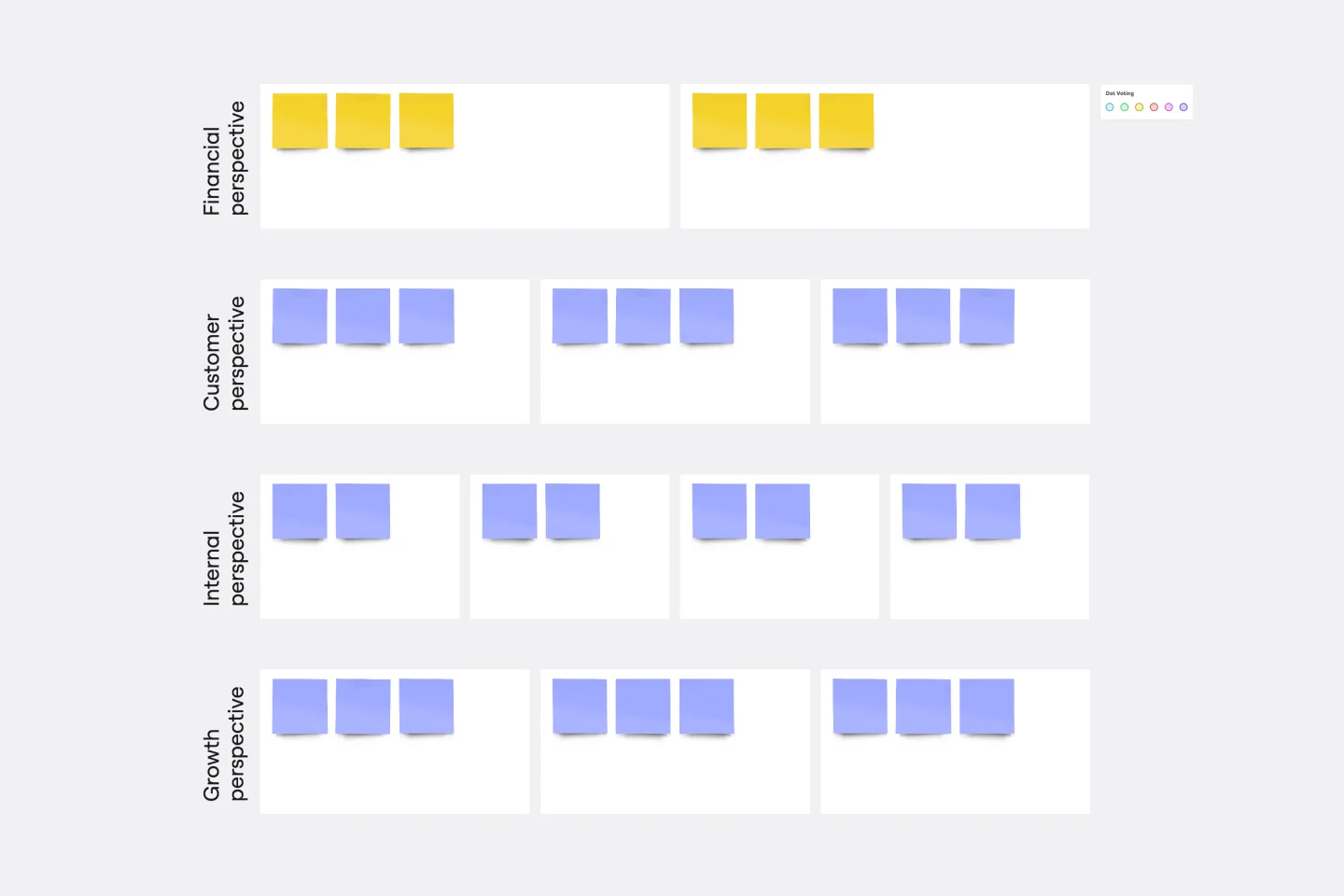

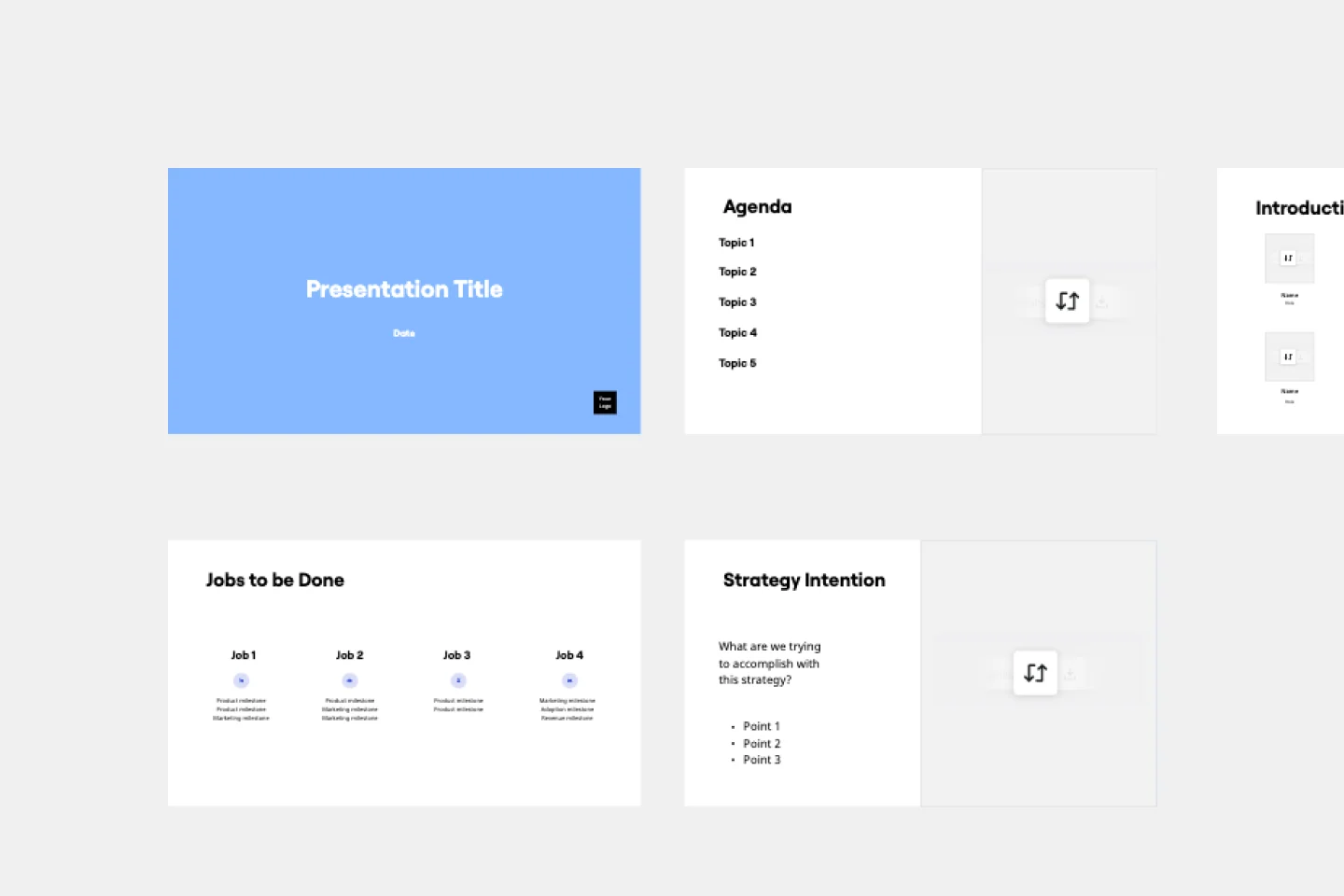

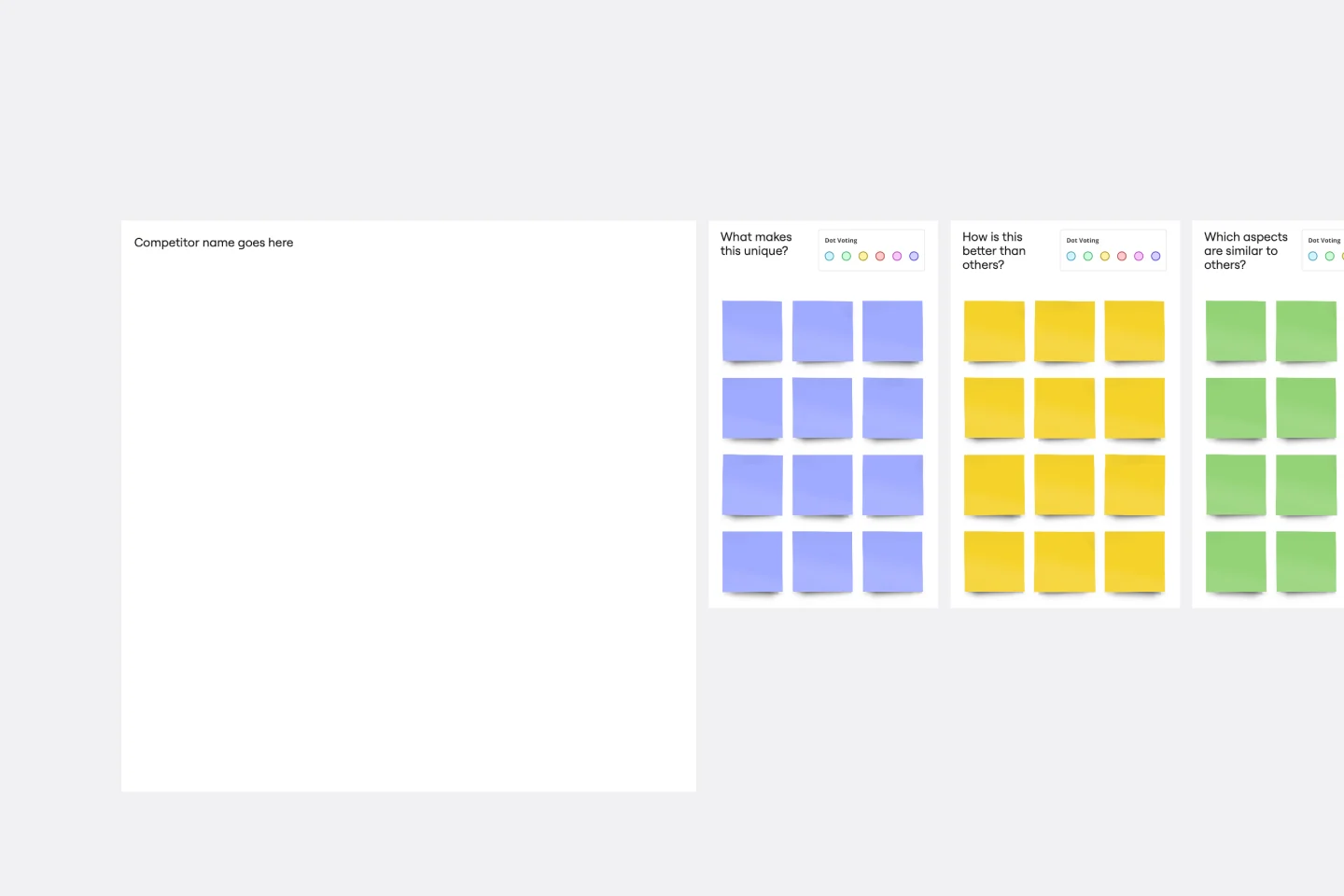
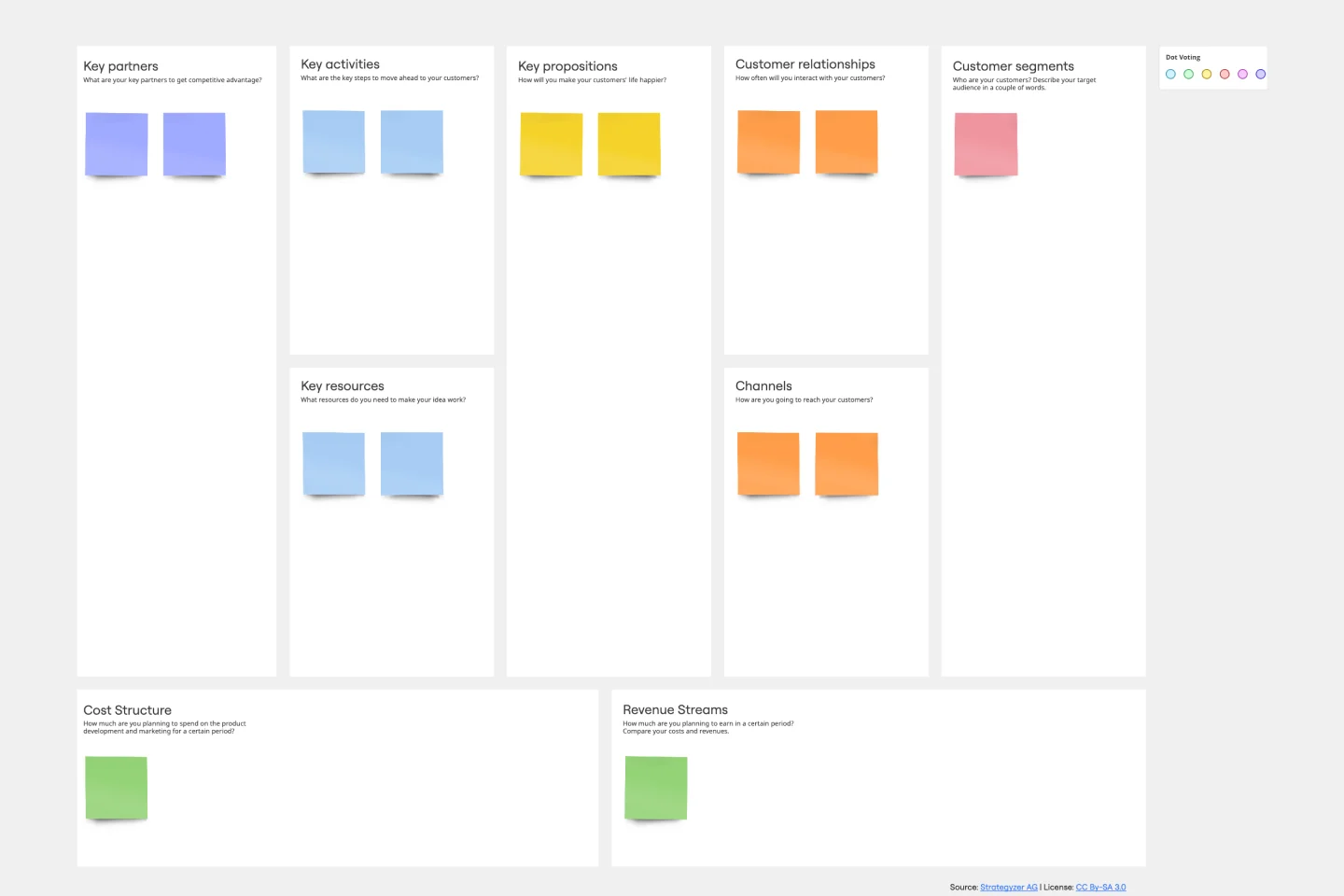
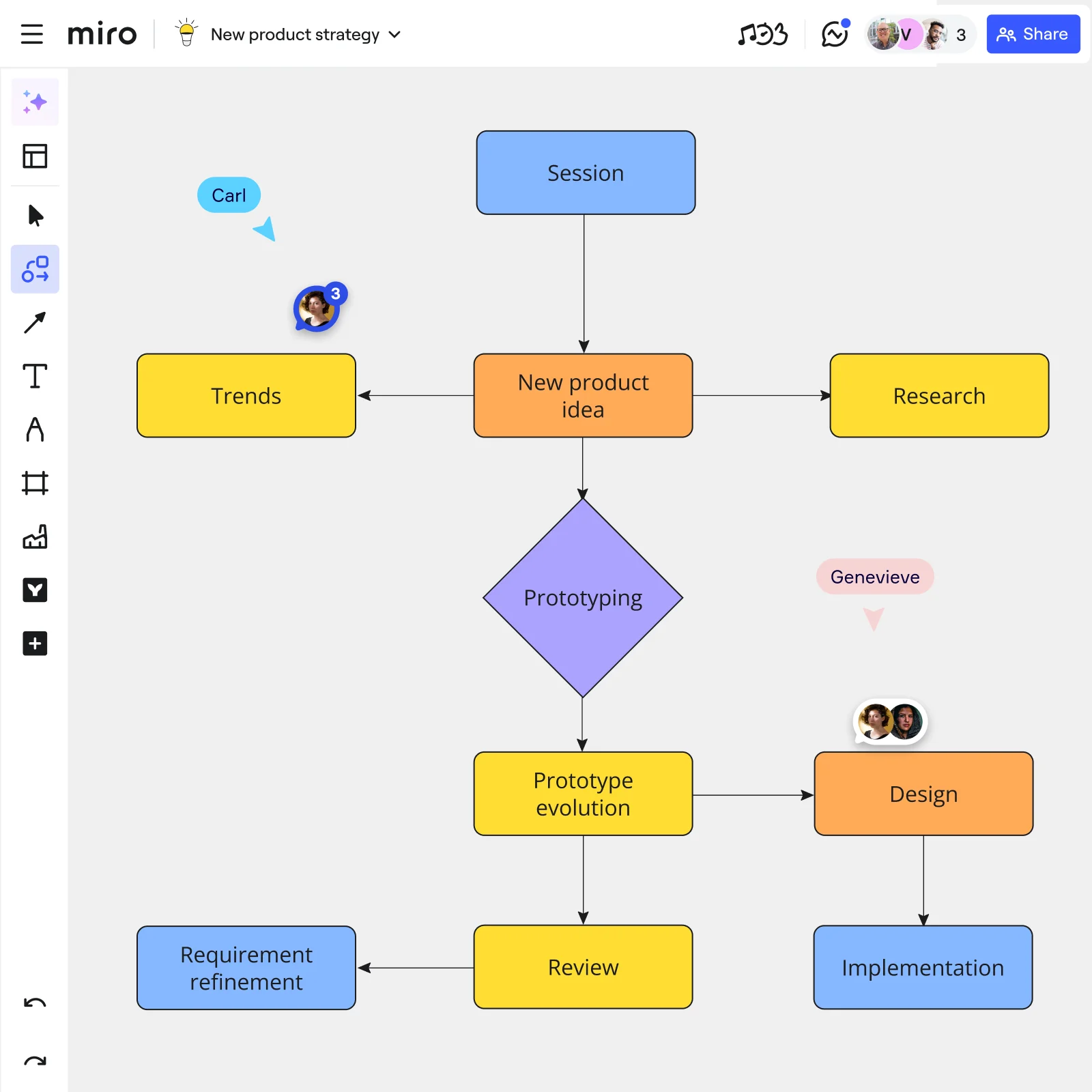
Planning tools FAQs

How can I choose the best strategic planning tool for me?
Start by analyzing your project needs and scope to see which frameworks are fitting your needs. Make sure to choose an online planning tool that is intuitive and easy, so everyone is kept in the loop and works collaboratively. Miro lets you work in real time or async, making it easy for teams to connect and develop actionable plans and strategies, no matter where they are.
Are Miro’s planning tools free?
Yes! Sign up for free, browse through our Templates Library, and start your planning immediately, right on the board.

